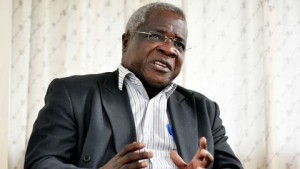In the lengthy and secretive negotiations between the government and Renamo over decentralisation, there has been agreement that provincial governors should be elected, rather than simply appointed by the President, as is the current constitutional arrangement. But there was a lengthy impasse over whether the election should be direct or indirect.
Renamo used to argue for the direct election of governors – which means that voters at general elections would be faced with four ballot papers: for the President of the Republic, for the national parliament, the Assembly of the Republic, for the Provincial Assembly, and for the Provincial governor.
The government, however, preferred an indirect method of election, whereby the elected provincial assembly would choose the governor. Dhlakama now accepts this, and even claims that the idea came from him.
He told “O Pais” that he had proposed to President Filipe Nyusi three possibilities. The first, and most simple, is that the person heading the list of candidates of whichever party won a majority in the Provincial Assembly should automatically become governor.
The second proposal is a variant on the first. The party winning the provincial assembly election could appoint any of its provincial deputies as governor, and not necessarily the head of the list.
Dhlakama said the third possibility is that the winning party could appoint any of its members governor, even if he or she is not a member of the provincial assembly, as long as he or she is a registered voter and had cast a ballot in the provincial assembly election.
“Currently we are waiting for a final reaction from the government to these proposals, and I believe one of them will be validated”, said Dhlakama. He said Nyusi had accepted all three proposals and now it was up to the government to choose between them.
Dhlakama made it clear that he regarded the Assembly of the Republic as a mere rubber stamp that would approve whatever the government and Renamo negotiators decided. He added that he and Nyusi “have been doing our utmost to ensure that when the document on decentralisation enters the Assembly, our parliamentary groups will approve it”.
He said that, in his last phone conversation with Nyusi, on 13 December, the two had agreed that the decentralisation document will be deposited in the Assembly “within 30 days”.
Dhlakama was confident that “the document will be discussed and approved in March next year”. This would allow Nyusi to announce the exact date of the October 2019 presidential, parliamentary and provincial elections 18 months in advance (i.e. in April) as legally required.
“The important thing is that there is consensus”, said Dhlakama. “We in Renamo are very pleased, because we have made a historic achievement – an effective decentralisation”.
But there was no such consensus on the second matter under discussion in the working groups set up between the government and Renamo – namely the inclusion of members of the Renamo militia in the armed forces and the police. Dhlakama has made the appointment of his men to senior military and police positions a condition for disarming and demobilising his militia.
Despite his demand for a “non-partisan” army, Dhlakama still has a vision of an officer corps where half comes from the ruling Frelimo Party, and half from Renamo. But Frelimo abolished its branches in the army decades ago, and there is a ban on serving officers taking any active part in politics.
Furthermore, since 1997 recruitment to the Mozambican armed forces (FADM) has been on the basis of conscription, and the conscripts are not asked which political party they support.
None of this made any difference to Dhlakama’s demand for a 50-50 division of senior posts. “What we have been defending is balance in the leadership of the defence and security forces”, he said. “For example, if we decide that our army should have eight colonels, then four should be from Frelimo and four from Renamo”.
When AIM, in reaction to this, asked the Frelimo Central Committee Secretary for Mobilisation and Propaganda, Caifardine Manassse, how many colonels Frelimo has, he replied “Frelimo is a political party and as such Frelimo doesn’t have an army. It doesn’t have any colonels. It just has members and sympathisers”.
“The army that exists is the army of the Republic of Mozambique”, added Manasse, “and it is not the army of any political party”.
Dhlakama said he insisted on top military posts for Renamo officers as a matter of security, claiming that, unless his militiamen are integrated into the FADM, his life will be in danger. He added that he will not leave his current hideout in a Renamo base in the central district of Gorongosa until this issue is resolved to his own satisfaction.
Post published in: Africa News


